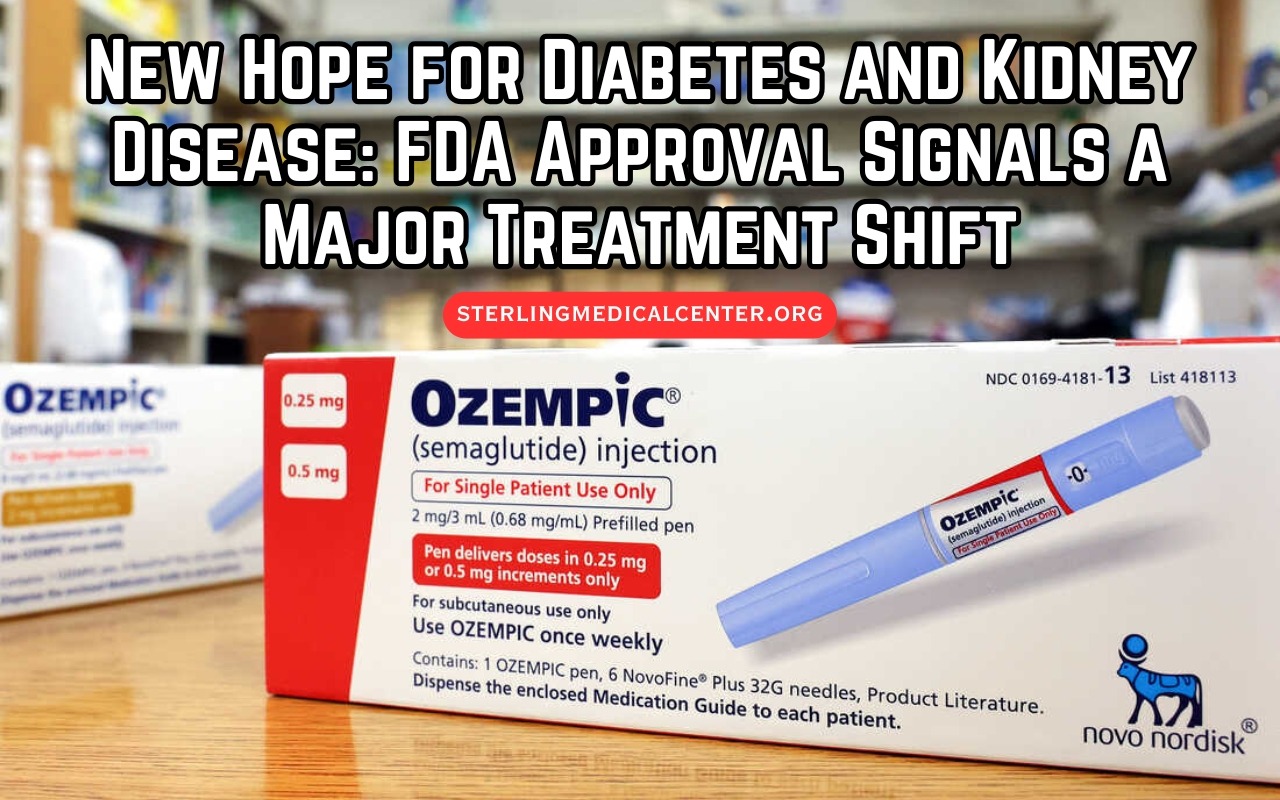
The U.S. Food and Drug Administration has expanded the use of Novo Nordisk’s leading injectable medication, approving it for the treatment of chronic kidney disease (CKD) in individuals with Type 2 diabetes. This decision significantly broadens its clinical application and represents a major advancement in managing a condition that affects millions of Americans.
Previously prescribed primarily for blood sugar regulation, this medication is now approved to help slow the progression of kidney disease, lower the risk of kidney failure, and reduce mortality from cardiovascular complications in patients living with both diabetes and CKD.
This approval is expected to reshape the standard approach to CKD treatment. As kidney disease progresses, it gradually impairs the body’s ability to filter waste, often leading to serious complications, including the need for dialysis or transplantation. According to Novo Nordisk, an estimated 37 million adults in the United States are affected by some stage of CKD, making this a significant public health concern.
Diabetes is a well-documented risk factor for CKD, with nearly 40% of individuals diagnosed with Type 2 diabetes developing kidney dysfunction over time. The condition not only compromises kidney health but also dramatically increases the risk of cardiovascular disease and premature death.
Dr. Stephen Gough, global chief medical officer at Novo Nordisk, emphasized that CKD is a progressive condition that worsens over time. Without intervention, many patients reach end-stage renal disease, requiring long-term dialysis or transplantation, both of which carry substantial burdens and high mortality risks. Cardiovascular complications remain a leading cause of death in individuals with advanced kidney disease.
The FDA’s approval further reinforces the growing recognition of a class of medications initially developed for glucose control and weight management, now demonstrating additional health benefits beyond their original indications.
The decision follows a landmark clinical trial that found the therapy reduced the risk of severe kidney-related outcomes—including complete kidney failure, rapid decline in function, or death due to kidney or heart disease—by 24% in individuals with Type 2 diabetes and CKD when compared to a placebo.
Participants who received the treatment also experienced an 18% reduction in major cardiovascular events, such as heart attacks, as well as a 20% decline in overall mortality. Furthermore, the therapy was associated with a 29% decrease in cardiovascular-related deaths.
Dr. Gough noted that CKD and cardiovascular disease are inherently linked, and many treatment strategies for early kidney disease focus on controlling cardiovascular risk factors, including hypertension management.
The study further reported that 49.6% of participants receiving the medication experienced serious adverse effects, slightly lower than the 53.8% observed in the placebo group. While gastrointestinal side effects such as nausea and vomiting were more common in those taking the drug, these reactions align with the known safety profile of this class of medication.
Regulatory authorities in Europe approved the same expanded indication in December.
Novo Nordisk concluded its phase three clinical trial a year ahead of schedule in October after reviewing overwhelmingly positive interim data. The announcement resulted in a nearly 20% drop in the stock prices of dialysis providers, reflecting expectations that fewer patients may require these services in the future.
The clinical study, named FLOW, was initiated in 2019 and followed approximately 3,500 participants with Type 2 diabetes and moderate-to-severe CKD.
Dr. Gough emphasized that metabolic disorders such as diabetes, obesity, kidney disease, and cardiovascular disease often coexist in the same patient, making comprehensive treatment strategies essential. A therapy capable of addressing multiple conditions in a single injection presents a significant advancement in chronic disease management.
The FDA’s decision coincides with the Biden administration’s ongoing Medicare drug price negotiations, which include this therapy, along with two additional Novo Nordisk products containing the same active ingredient—a weight-loss version and an oral diabetes medication.
Meanwhile, Novo Nordisk continues to navigate competition from Eli Lilly while advocating for expanded insurance coverage of its weight-loss medication. In 2023, the company secured FDA approval for this medication to reduce the risk of major cardiovascular events such as heart attacks and strokes, and it is now exploring potential applications in treating liver disease.
This latest regulatory milestone solidifies the role of this therapy as a cornerstone treatment for chronic conditions, offering a broader range of health benefits beyond its original purpose.